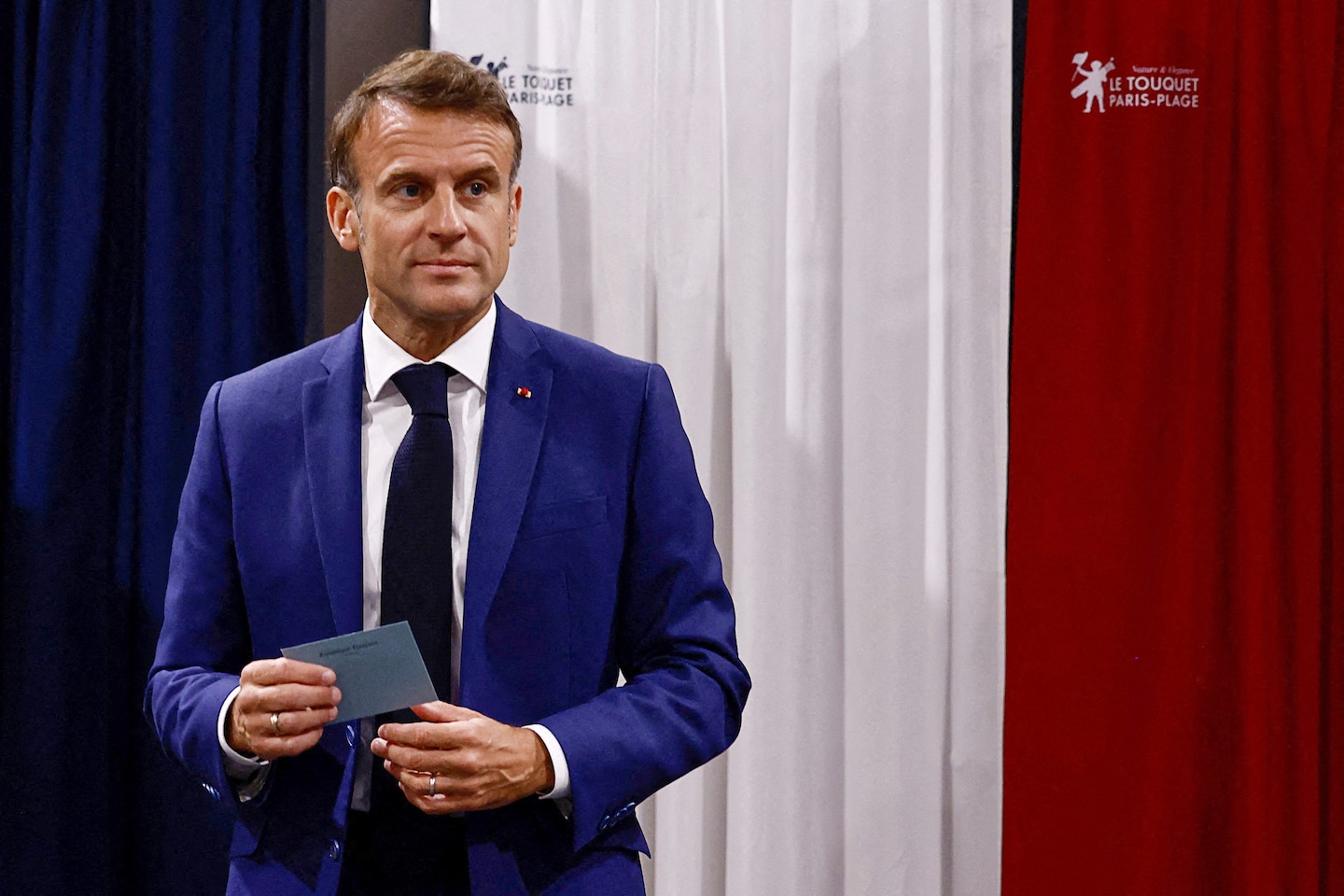The projections showed National Rally narrowly falling short of a majority of seats in parliament. If it can expand its lead and win a majority in the second round of voting on July 7, it could put forward 28-year-old Bardella as the country’s first far-right prime minister since World War II and replace Macron’s pro-Europe, pro-business agenda with its populist, euroskeptic and anti-immigration platform.
Macron could stay on as president until his term expires in 2027 — and he has said he will not resign. But he wouldn’t be able to do much to prevent the adoption of nationalist laws.
Alternatively, if the second round doesn’t result in a clear majority, it could paralyze French politics and make it impossible for the lower house of parliament to agree on a new government.
GET CAUGHT UP
Stories to keep you informed
“The French crisis has only just started,” said Gérard Araud, a former French ambassador to the United States.
Sunday’s projected election results are likely to cause alarm in many European capitals. France is one of the European Union’s original members, its second largest economy and a driving force in E.U. affairs. The National Rally party no longer advocates leaving the bloc, but many of its proposals are out of step with E.U. policies.
Another concern is whether a far-right win might reduce support for Ukraine and undermine Europe’s stance on Russia. Le Pen is already challenging Macron’s hold on French foreign policy and defense, suggesting the president play a more honorary role as commander in chief of the armed forces.
In many ways, Sunday’s vote was a referendum on Macron, who founded a movement in his own image and upended French politics when he became the first modern president elected from outside the center-left and center right parties that had dominated French politics for decades. But he has become an extremely unpopular leader.
Araud compared him to Napoleon Bonaparte when the French emperor launched his failed campaign to invade Russia in 1812. Many of the politicians who have supported him for years are now facing the possibility of losing their seats, leaving Macron politically isolated.
Some of his critics say he decimated the traditional center, making extreme parties the only viable outlets for anyone frustrated with his program.
The National Rally party grew out of a fringe movement co-founded by Le Pen’s father, a convicted Holocaust denier. But efforts by Le Pen and Bardella to make the party more broadly appealing have yielded significant gains: Support has nearly doubled in the past two years, from 19 percent in the 2022 legislative elections to 36 percent now.
Macron announced snap elections after his alliance suffered a humiliating defeat in European Parliament elections on June 9. While he wasn’t required to dissolve France’s National Assembly, he said he had little choice. If he had not called the vote, he told reporters, “you would have told me: ‘This guy has lost touch with reality.’”
Macron probably hoped that the higher turnout and the higher stakes of a national election would boost the chances of his alliance. But public sentiment in France has remained largely unchanged since the European elections, polls show.
“It’s possible that he underestimated the hate that he generates in a part of the population,” said Chloé Morin, an author and political analyst.
Macron might have also underestimated the French left. Despite its deep divisions, the left was able to cobble together a broad alliance that has overtaken Macron’s allies in the polls and now ranks second.
Macron has at times portrayed the far left as equally dangerous as the far right, frustrating some leftist supporters of Macron. Vitriolic rhetoric and conspiracy theories spread by National Rally candidates and base supporters continue to raise concerns over how much it has evolved from its antisemitic and racist roots.
Almost 1 in 5 of National Rally’s candidates for parliament have made “racist, antisemitic and homophobic remarks,” Macron’s outgoing prime minister, Gabriel Attal, said in a televised debate on Thursday night.
National Rally voters appeared undeterred by these concerns. “Maybe the party is racist and antisemitic, but France needs change,” said 32-year-old Maude, a resident of Arnouville, north of Paris.
Maude, who did not give her last name to protect her privacy, is of Moroccan-Jewish descent and initially considered voting for Macron’s party. But ultimately, she said she voted for National Rally on Sunday because she felt that “French people should have more privileges than foreigners.”
Exit polls from the European elections three weeks ago suggest that the far right is benefiting from growing concern over living costs, despite government spending under Macron to keep inflation lower than in many other European countries. Voters fault Macron for his unpopular decision last year to increase the retirement age. Immigration and security are also rising concerns, polls show.
Rauhala reported from Brussels and Timsit from Nice, France.
#France #election #projections #Voters #punish #Macron #boost #farright,
#France #election #projections #Voters #punish #Macron #boost #farright
